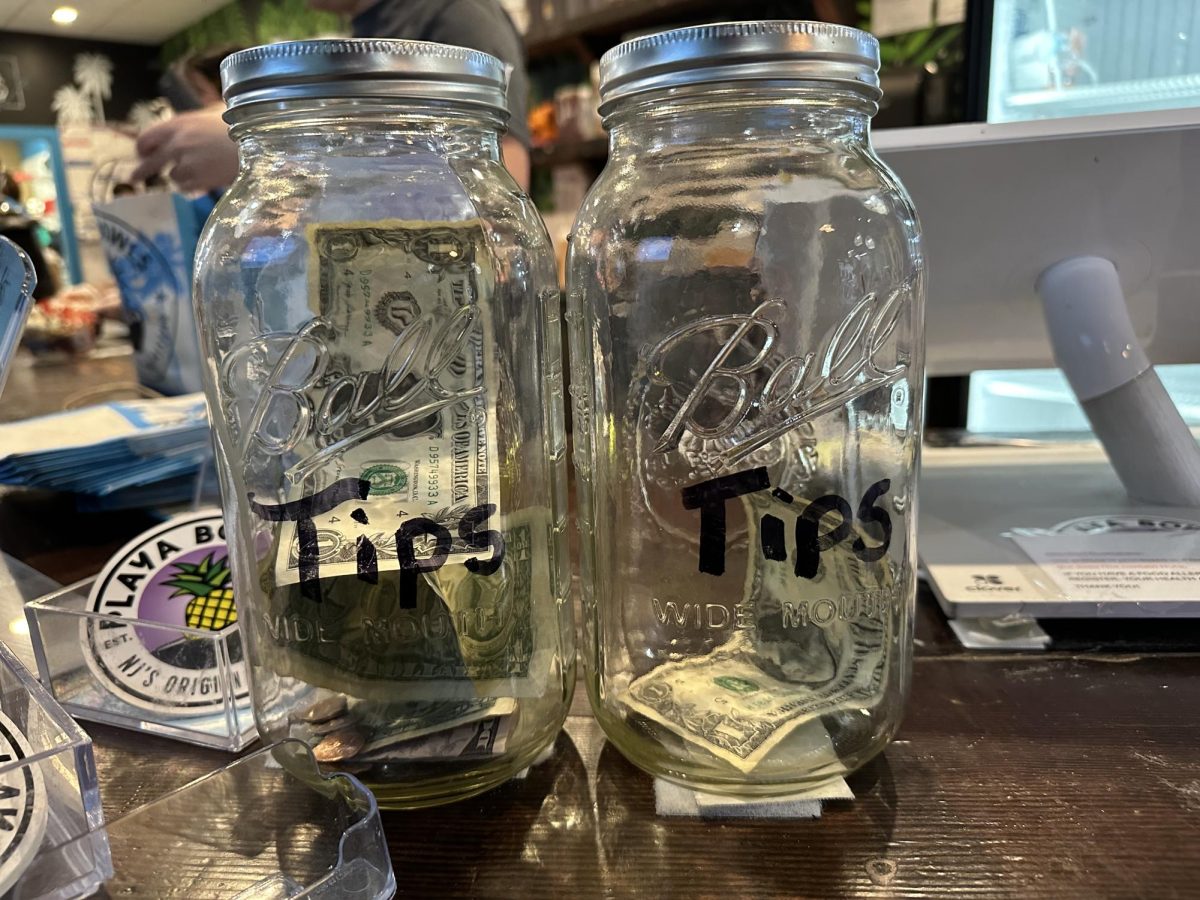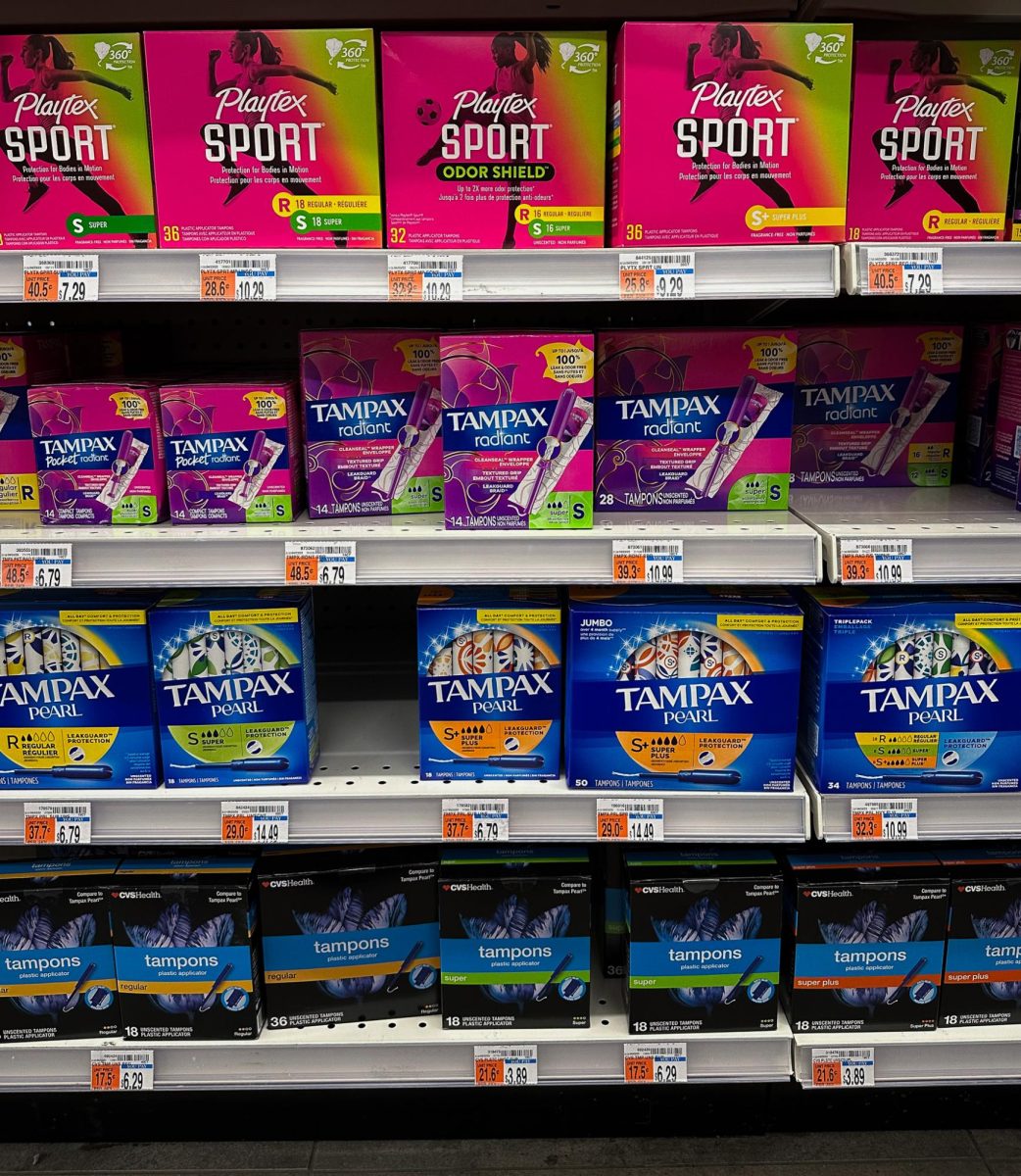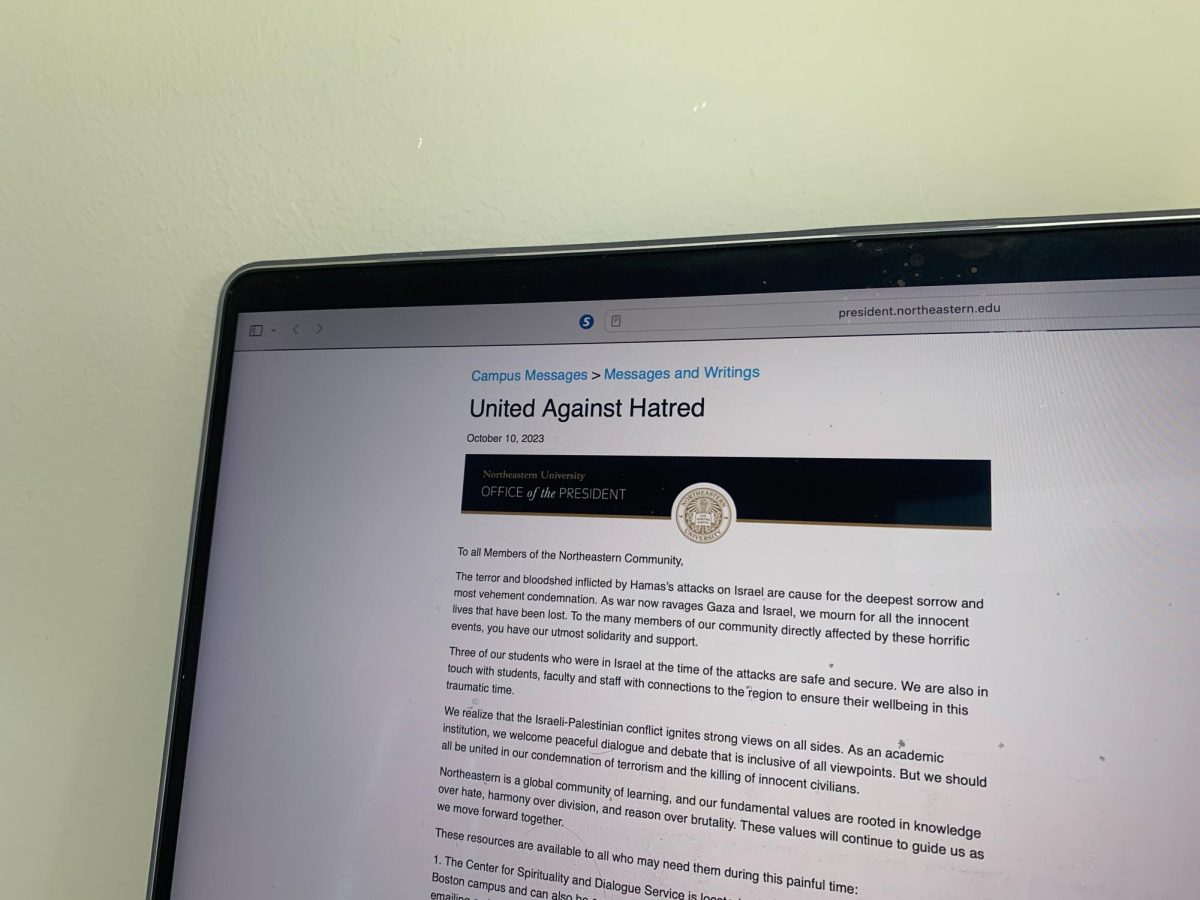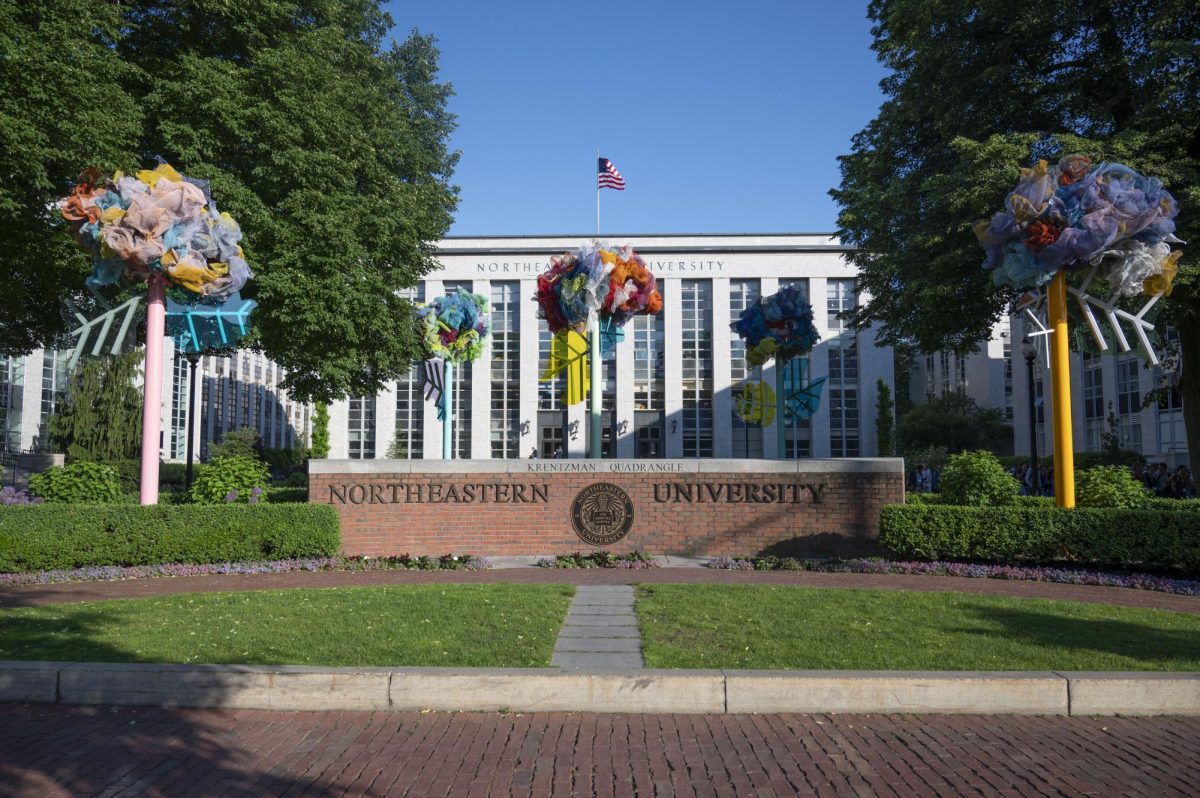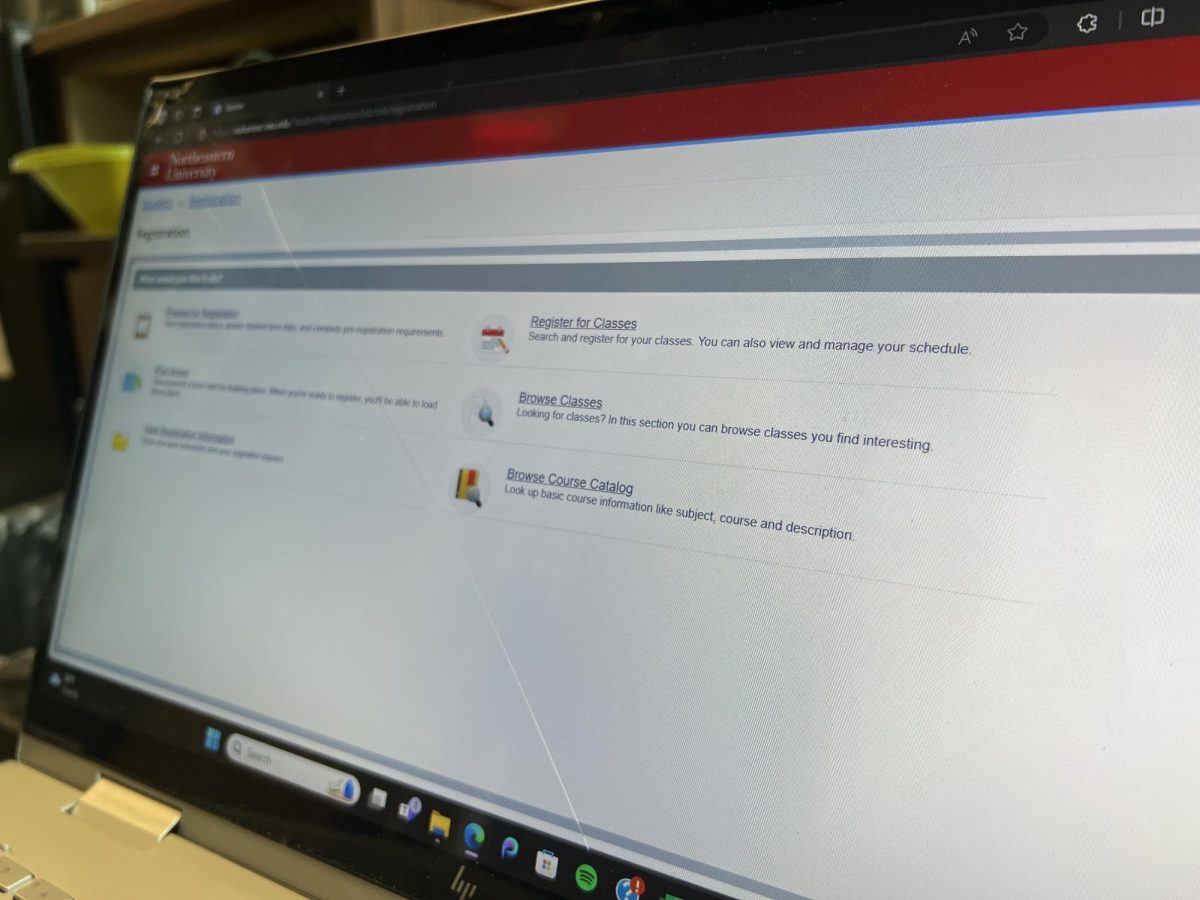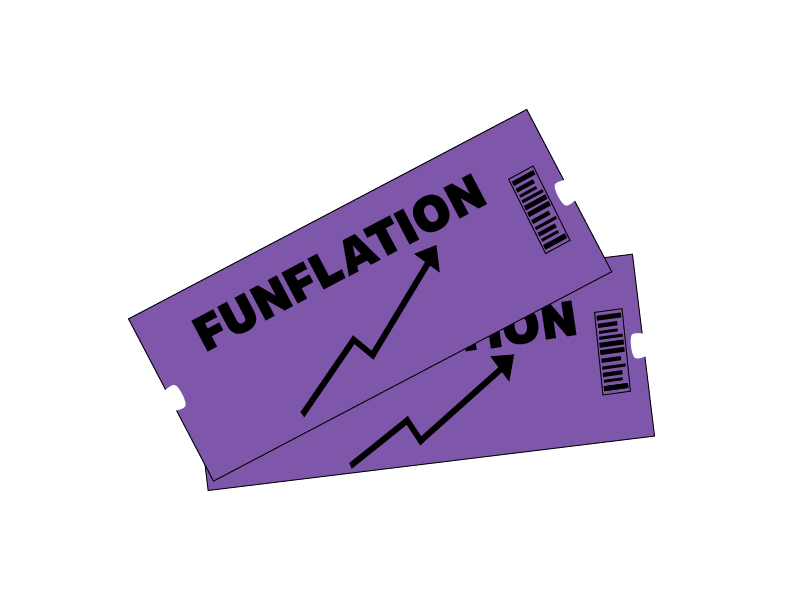No matter how frequently I see it happen, I always dread the moment when service workers flip around their digital pay screen, raise their voice to an unnaturally high tone, forcefully smile and say, “It’s just going to ask you one more question.”
I am not tipping you 20% on a $10 meal. That’s your answer.
Tipping in the United States has soared in the wake of the COVID-19 pandemic. According to data from the National Library of Medicine, average tip-per-order increased by $1.24 after health officials declared COVID-19 a national emergency on March 13 2020, and remained elevated for several months. Square, a financial services company, told NBC News that tip frequency has risen by 16% since the pandemic at quick-service restaurants like fast food chains.
One possible reason for this was that the pandemic was so unprecedented and had such unfortunate circumstances. Because of this, there was an outpouring of support for individuals who put their lives on the line for others to deliver food and supplies — a truly admirable thing. I tipped for this reason, and I’m sure you did, too.
The pandemic also changed important circumstances for many businesses, like the hours and days they were open. Changes like these created a decrease in reasonable wages for employees. The Pew Research Center conducted a survey of 4,917 U.S. adults April 7-12 2020 that found a third of respondents reported they had taken a pay cut in recent months, largely attributed to reduced hours or demand. To compensate for this wage decrease, customers felt incentivized to tip more when these employees worked, as they wanted the employees who just did them a brave service to support their own families. I tipped for this reason as well.
From 2019 to 2020, global monthly wage growth slowed from 2% to 1.5%, according to the International Labour Organization. This may seem like a modest change, but it wasn’t, considering the continued trend. Global monthly wage growth fell to negative 0.9% in the first half of 2022, according to the ILO. This was the organization’s first negative global wage growth recorded since the first edition of their Global Wage Report in 2008, the Great Recession.
But service workers aren’t in these same negative, unprecedented circumstances today. According to the U.S. Department of The Treasury, the size of the U.S. economy is now 5.4% above its pre-pandemic 2019 level. Customers shouldn’t be responsible for the compensation of decreased wages for all jobs at any given time. Companies should provide reasonable wages for their employees.
Previous complicated circumstances such as these have created a long-term problem that some experts have termed “tip-flation.” What was once a genuine gesture of appreciation for brave and exceptional service during a tough time has transformed into a seemingly expected practice. The expectation to tip for every small service job simply does not make sense.
For instance, tipping at a frozen yogurt shop where you create your own treat, put it on the scale yourself to calculate the price and swipe your own card does not make sense. Plainly stated, the employee’s job includes nothing to require a tip. Instances like these, where the person who receives the tip displays no external effort, leave a majority of customers quite frustrated — and rightfully so.
Additionally, there is a newfound expectation of tipping someone who is merely completing their job description. For example, take a cashier at a fast food place, such as Burger King or Wendy’s. They take your order and hand you some greasy fries to accompany your meal as part of their job description. Are they truly going above and beyond for a tip by carrying out their job’s basic responsibilities? Although the employees are just trying to work their minimum wage salaries, a customer can’t help but be frustrated at the situation the system in place created, where tipping is forced into every job.
Regardless of their relation to this topic, I can already hear the backlash from anyone who reads this: Workers in countless jobs are expected to earn half their minimum wage from tips.
I understand all of that. I understand that minimum wage workers still need to pay their bills, and that there are individuals out there working more than one job and still barely getting by. To put numbers to this statement, the United States Department of Labor Department reported that nearly 8.4 million people held multiple jobs in October 2023. This is especially prevalent due to the modern rise of ride apps like Uber, which is creating an influx of job opportunities, where requirements include simple things such as meeting a minimum age, driving experience and screening, insurance and car registration.
Yet, I’m still expected to tip someone for a job that does not increase the quality of my experience.
You might ask when I would tip.
I would tip if I am at a sit-down restaurant, my drink is refilled without me needing to ask, my questions about the menu are easily answered by the waiter and the waiter makes an effort to connect with me beyond just completing their job description. If the worker takes the time to create an exceptionally welcoming environment for my experience, they deserve a tip. Honestly, tipping might just be designed for jobs more similar to this.
Tipping can be quite subjective. But if we continue to give meaningless tips to those who do not go above and beyond, it will reduce the relevance of what it means to earn a deserving tip in the workforce.
Instead of using excessive tipping as a temporary solution to our country’s economic problems, we must actively work with the system on policy changes such as raising the national minimum wage.
The national minimum wage is currently only $7.25 per hour. For employees who receive tips, it is $2.13 per hour — they are expected to compensate and reach $7.25 per hour on their own. We need to pay employees a price that reflects them as human beings. The standard payment per hour in the U.S. should not be less than buying a Starbucks drink of any size (tall, grande or venti) two days in a row.
Germany’s minimum wage is $13.50, and France’s is $12.65. Other countries have it figured out. It’s time we do, too.
Anna Palfy is a first-year journalism, marketing, and public relations student. She can be reached at [email protected].







